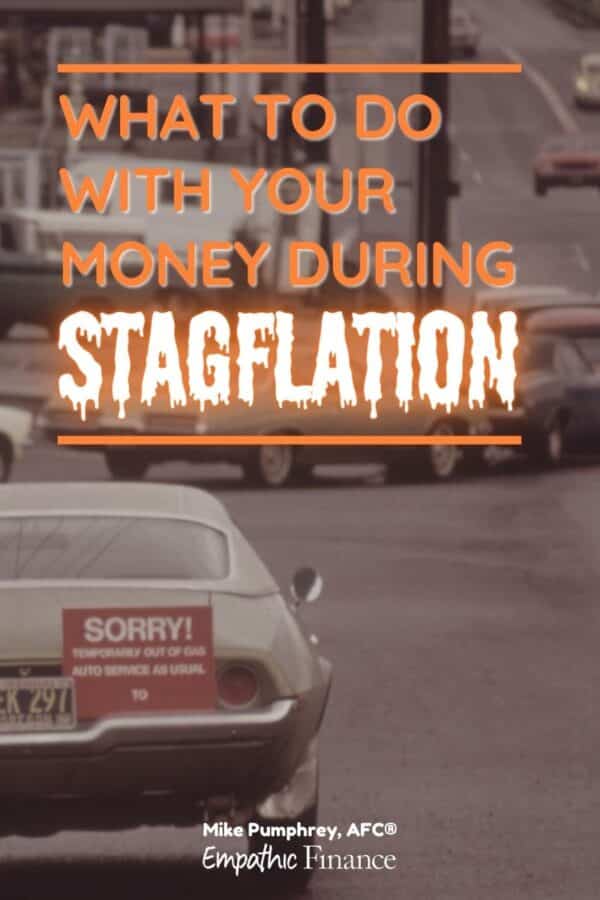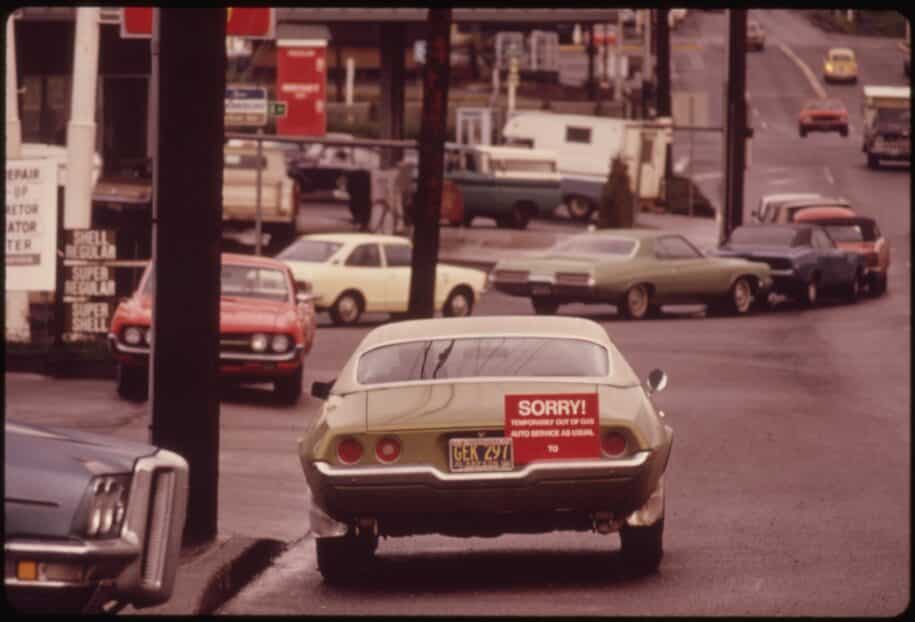Stagflation is where a stagnant economy also contains rising inflation. It’s bad, but you can take steps to protect yourself and your money.
There are a lot of things we all can’t quite fathom about the U.S. economy in the middle of 2025. For example, why is the stock market booming when all economic indicators indicate storm clouds on the horizon? Is the country really being propped up on speculative investments in AI? Is there any universe in which those AI investments will become profitable?
But one thing that pretty much everyone agrees on, unless being paid to say otherwise, is that tariffs are a tax on consumers (though an indirect one), and the higher the tariffs get, the more people are going to pay.
This isn’t really up for debate. When the price goes up for a good, either the importing company is going to pay it or they are going to pass on the cost to the consumer. Now which do you think is more likely?
Increasingly, people are talking about the risk of stagflation in the U.S. economy.
If you are of a certain age or know your history, you’ll probably shudder at that word.
But since we appear to be going back there, at least potentially, it’s worth taking a look at what stagflation is, and what this means for your money.
Table of Contents
What is stagflation?
Stagflation is a combination of the words “stagnation” and “inflation”. It describes an unhappy economic situation when both are happening at the same time.
In standard economic theory, an economy that is dynamic and heating up exhibits inflation. The more the economic boom, the greater the inflation.
In stagflation, there is a stagnating economy, where you wouldn’t expect to find inflation, but also inflation too. And it is particularly bad, because stimulating a stagnant economy (as one would want to do) typically leads to greater inflation. And reducing inflation, often by raising borrowing interest rates, will slow the economy down even further.
That makes it a hard situation to get out of.
What happened in the 1970s?
The last time the U.S. experienced a period of stagflation was in the 1970’s.
According to Investopedia:
After OPEC imposed an oil embargo in 1973, energy costs surged, increasing production and transportation expenses across the economy. Companies faced with higher costs had to either reduce output (leading to layoffs) or raise prices (feeding inflation), and many did both. The result was a toxic combination of rising unemployment and accelerating inflation that persisted throughout the decade.
You may have heard stories about lines around the block at gas stations, and gas stations themselves running out of gas. This was that.
How did the U.S. get out of this period of stagflation? Basically, the U.S. targeted the inflation part of the economy and strangled it, mostly by raising interest rates.
(You think the 7% mortgage rates we’re dealing with now are bad? In 1982, it was 16%.)
This worked, but at the cost of massive unemployment and a really terrible time for most Americans.
You can see why people don’t want to go through this again.
Why stagflation now?
So why are we talking about stagflation now? Mainly because you can substitute “massive tariffs in 2025” for “oil shock in 1973” and pretty much the same things happen. The economic shock slows down the economy (stagnation) while raising costs (inflation).
And what will happen if stagflation hits the economy?
Well, judging from last week’s firing of the Bureau of Labor Statistics commissioner, which was because the economic data was apparently “rigged”, I fully assume that everyone who tries to tell the truth about the economy will be sacked, and we will start to see made up numbers from official sources. (“We added 1,000,000 jobs last month!”) In short, the administration will deny that anything is happening.
What to do with your money
So given that stagflation is at least a possibility in the future, how should we react?
Well, if you’ve read anything by me over the last few years, you know that the first thing to do is to not react at all. Making a financial move based on an emotional reaction is almost certainly going to leave you poorer and full of regret.
A stagnant economy may mean job loss or wage reduction. Because of this, a robust emergency fund should be top of your priority list. Unless your job is somehow recession-proof (or AI-proof), you want to have some money put away in case you don’t have any income for a while.
Meanwhile, inflation means that your money isn’t going to go as far as it does today. To explain: if you remember how much it cost to go out to eat before the pandemic versus now, that’s what I’m talking about. The price went up, but for most people their wage didn’t go up by nearly as much. Thus, the money doesn’t go as far.
Because of this, you want to make sure that your money is making as much money as it can. Your savings shouldn’t just be sitting in your big bank savings account earning 0.01% interest, but instead should be sitting at an online bank that earns 4-5% (the going rate as of now).
Not investment advice
A lot of the chatter I’ve heard online about stagflation is regarding where to put your investment money, the funds in your 401(k), IRAs, etc.
I don’t recommend making changes to your portfolio, especially if you’re still in your working years. Passive index funds have been my go-to for my whole life, and while they weren’t around in 1973 (Vanguard produced the first index fund in 1976) they appear to work in all economies—including bad ones—over the long term.
Even looking at the years 1973 to 1983, the S&P 500 still beat the massive inflation that was happening at the time.
If you were convinced that you had to move things around, it might be worth looking into inflation-resistant products like TIPS (Treasury Inflation-Protected Securities), or looking into “defensive” investments, sectors (such as healthcare and utilities) that are traditionally better performing in a stagflationary environment.
Just don’t buy individual stocks. And while you’re at it, don’t buy gold either.
My best suggestions
I don’t offer financial advice on this site. However, if I were chatting with a friend right now, here’s what I would suggest:
- Keep your emergency fund strong
- Reduce/eliminate debt
- Be intentional about your money
- Don’t make emotional/rash financial decisions
- Be amazing at your job
- Stay flexible when circumstances change
- Don’t panic
And that last part is really important. As they say, “the market has predicted nine of the last five recessions”. We don’t know what’s going to happen.
I wish I had any confidence in anyone running our government. I wish I believed that they would think of what’s in the best interest of the American people versus what will just enrich themselves further. I just know that eventually, someone competent will come along and fix the mess that these people made. That has to happen, right?



